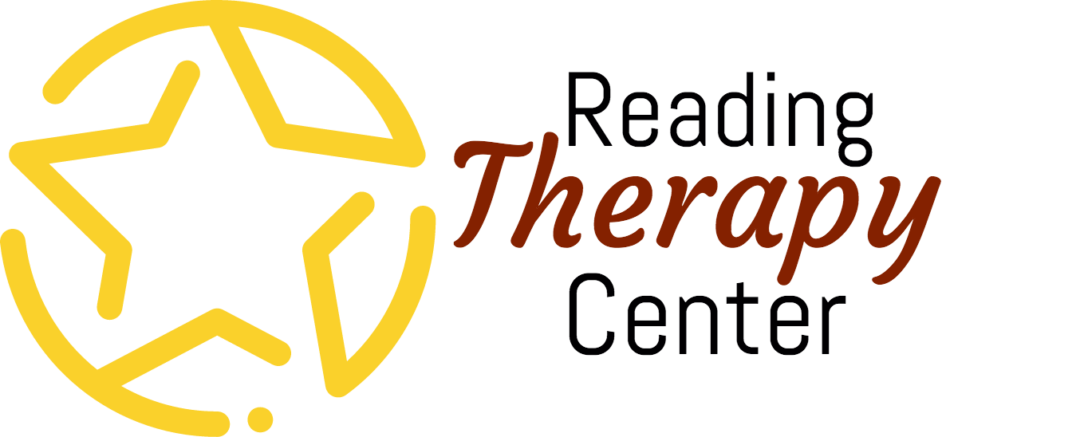Our work is truly
life-changing!
We see individuals who struggle with reading, writing, comprehension, language and math.
Our unique, intensive therapies address the core cognitive issues allowing permanent, powerful changes to happen impacting a person’s academic abilities and daily life skills.
Dyslexia
Dyslexia affects 20% of the population, or 1 in 5 students. A child can have average or above average intelligence but still struggle to read. The primary reason for reading and spelling difficulties is weak phonological awareness. It represents 80 - 90% of all students with learning disabilities, and is the most common of all neuro-cognitive disorders.
It used to be thought that people with dyslexia see words backwards; however, that has been disproven in the past 25 - 30 years. Children who struggle to read do not see words backwards, nor are they just lazy or unmotivated. They have what the literature refers to as weak phonological awareness.
Mathematics
While there is a social myth that it is okay to have poor math skills, the reality is that a math disability can be seriously handicapping in adult life. In today’s world, mathematical knowledge and problem-solving ability are no less important than reading ability.
Utilizing the RTC© Program, students use language, concrete manipulatives, and mental imagery to understand math concepts. They learn how to think and talk about numbers, relate math concepts to one another, and develop a solid understanding of our mathematical system.
Instruction is individually paced according to the student’s needs. New concepts are introduced, while older concepts are reviewed daily until they become internalized. The student uses his/her language to explain, and therefore, fully understands each concept. Each area is taught in a way that develops a solid understanding - not just memorization.
The program covers basic content areas such as: numeration, operations, measurement, time, money, fractions, decimals, etc. It also addresses higher-level mathematical knowledge through the 7th grade level, pertaining to each student’s needs.
Writing
Being able to write well is a skill directly connected to one’s ability to comprehend and verbalize information. Since most information must be written in school, it is important for individuals to be able to articulate what they know in written form in an organized, descriptive way.
In our Sentence Patterns program, we begin by teaching 10 simple sentence patterns with basic grammar vocabulary. Then we work on correcting fragments, using a wide variety of conjunctions, and move on to paragraph writing and conclude with essay writing. As individuals grasp the parts of sentences that are needed to state a complete thought, understand the deeper meanings of sentences with conjunctions, and learn the organization needed in paragraphs and essays, they show greater skill at understanding longer, more complex information as well. Not only do they develop better writing skills, they also gain skills in comprehension along the way.
Comprehension
One of the biggest problems for children and adults with weak comprehension skills is that they do not visualize the information they read or hear. They may image only parts of what they’ve read or heard. They might read and reread the same information or story and still not understand it. The following are signs of comprehension weaknesses:
Difficulty following and connecting to a conversation
Get bits and pieces from oral or written information but cannot grasp the whole
Struggle to think logically
May be labeled ADHD or a poor listener
Difficulty following directions
Writing is unorganized
Problems with note taking in school
Can’t understand test questions
Difficulty expressing ideas in written and oral forms
Can’t make connections between events, such as cause and effect
Difficulty recalling much of the information even if it was recently learned
Difficulty processing and analyzing information, making predictions, conclusions, evaluations and opinions about the information
Main ideas are hard to identify
In order to strengthen comprehension skills, we utilize multiple approaches. One of the therapies we use is Visualize and Verbalize® (“V/V”). This therapy teaches the person to create mental images to match the information in a sequential way to assist in recall, summarizing, and identifying main ideas and themes. This therapy progresses from short, low level material and progressively increases the length and difficulty of the information until the person is able to read or listen to grade level material. Discover Meaning® consists of 14 lessons and is used in conjunction with V/V in order to assist the person to use these skills in curriculum and other life situations. Each lesson focuses on a different skill such as identifying main ideas, written or verbal summaries, note taking, and study skills. We also address language weaknesses by working on areas such as vocabulary skills, idiomatic expressions, background knowledge, and word relationships.
Language
Language deficits can further impact an individual's comprehension and/or ability to verbally express themselves in a clear, concise manner. Difficulty with language concepts can impact a person’s performance in academics, work situations, and social settings.
Therapy sessions focus on increasing vocabulary, understanding word relationships, categorizing concepts, and grasping the meaning of idiomatic expressions. Used in conjunction with comprehension instruction, this can deepen a person's understanding and expression to a greater extent.
How do you determine if therapy is needed?
Prior to therapy, students receive a complete and thorough evaluation. Students are given 8 to 10 tests that measure the following areas: reading comprehension, oral comprehension, phonological processing (including phonemic awareness), reading, spelling, vocabulary, receptive and expressive language ability, and rapid naming.
Parents who have concerns about their child’s mathematical ability may request a math assessment as well. These students are given two to three math tests measuring the following areas: numeration, computation, rational numbers, problem solving, measurement, and money.
Immediately following the assessment, the parents and examiner will meet for approximately one hour. Testing results will be interpreted and explained at this time and recommendations made for a treatment, if needed. A written report will follow.
The sooner a child begins to receive treatment the greater the gains.






